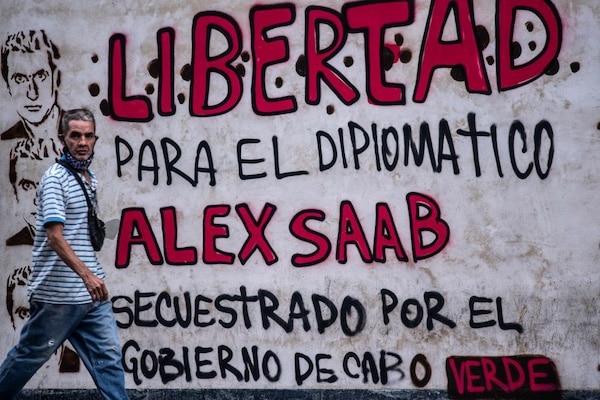UN experts* today urged the government of the United States of America to end the prolonged pre-trial detention of Alex Nain Saab Morán, a Venezuelan Special Envoy, arrested and extradited to the U.S. on money laundering charges.
Saab was appointed as a Special Envoy by the Government of Venezuela in April 2018 to undertake official missions in Iran to secure humanitarian deliveries to Venezuela, including of food and medicine.
In July 2019, he was placed under U.S. sanctions for allegedly being responsible for inter alia engaging in transactions or programmes administered by the Government of Venezuela.
On 12 June 2020, during his third trip to Iran, while in transit through Cabo Verde, he was arrested and detained by local authorities. Following an extradition request by the U.S., he was ultimately extradited in October 2021. The Cabo Verde courts dealing with his case reportedly rejected his numerous appeals against the extradition, his diplomatic status as an ad hoc diplomat, the decision in his favour by the ECOWAS Court, and discarded numerous official communications by the Government of Venezuela and the recommendations by human rights mechanisms, including Human Rights Council’s Special Procedures and the African Commission on Human and Peoples’ Rights.
“We note with concern the reported irregularities in the arrest and detention in Cabo Verde of Mr. Saab, prior to his extradition to the U.S.,” the experts said. “In particular, information we received indicates that at the exact moment of his arrest, while he was on his place at the Amílcar Cabral International Airport, there was no Red Notice by Interpol, nor an arrest warrant presented to him. Both were instead issued ex post facto,” they said.
Following his extradition, U.S. judicial authorities dropped seven counts of money laundering against him, while maintaining a single count of conspiracy to commit money laundering.
“We deeply regret that for almost two years since his extradition, Mr. Saab remains in detention awaiting trial for alleged conduct which is not considered an international crime, and thus should not have been the subject of extraterritorial or universal jurisdiction,” the UN experts said.
“The actions against Mr. Saab are not only violations of his human rights, such as freedom from arbitrary detention, presumption of innocence and fair trial guarantees, but also a violation of the right to an adequate standard of living for millions of Venezuelans, as result of the abrupt interruption of his mission for the procurement of essential goods,” the experts said.
The experts were informed that since his extradition Saab was being detained at the Federal Detention Center in Miami, which is not a correctional institution, but instead a pre-trial administrative facility. Inmates at this facility are not segregated based on the type and gravity of their offences. He suffers from substandard conditions of detention, including poor quality of food and inadequate medical treatment, which is adversely affecting his health.
“We call on the United States to comply with its obligations under international law, to immediately release Mr. Alex Nain Saab Morán and drop all charges against him,” the experts said.
ENDS
*The experts: Alena Douhan,Special Rapporteur on the negative impact of the unilateral coercive measures on the enjoyment of human rights; Livingstone Sewanyana, Independent Expert on the promotion of a democratic and equitable international order
The Special Rapporteurs, Independent Experts and Working Groups are part of what is known as the Special Procedures of the Human Rights Council. Special Procedures, the largest body of independent experts in the UN Human Rights system, is the general name of the Council’s independent fact-finding and monitoring mechanisms that address either specific country situations or thematic issues in all parts of the world. Special Procedures’ experts work on a voluntary basis; they are not UN staff and do not receive a salary for their work. They are independent from any government or organization and serve in their individual capacity.

